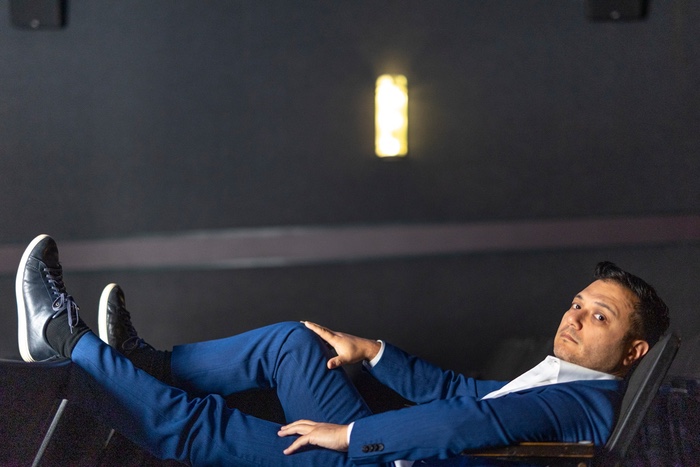
Sat 2/22 & Sun 2/23 @ 4PM
Cleveland period music chamber ensemble Les Delices was founded in 2009 by baroque oboe player Debra Nagy as sort of a kid sibling to the established baroque orchestra Apollo’s Fire, which was already laying the groundwork to international fame. (Nagy also performs with them.)
Les Délices seems poised to follow in their footsteps. From modest performances in small venues, it’s spread its wings not just into bigger venues and more markets, but in terms of the scope and ambition of its concerts. They’ve presented multi-disciplinary shows that are virtually events; they’ve organized their seasons thematically; and during the pandemic, they were one of the most creative performance groups in experimenting with ways to present virtually — their online SalonEra series, featuring music with educational narration by performers and music historians, has outlived the pandemic.
New music has become part of its portfolio of creative enterprises as well. Its current season is called Visions & Dreams, and its upcoming concerts, titled A Moment’s Oblivion, feature tenor Nicholas Phan, performing a world premiere cantata by 34-year-old Vietnamese-American composer Viet Coung, with a libretto by noted northeast Ohio poet Dave Lucas, a former Ohio poet laureate, along with French baroque music by Michel Pignolet de Montéclair, Marin Marais and François Couperin.
Les Délices will perform the program at Heights Theater on Saturday February 22 and West Shore Unitarian Universalist Church on Sunday February 23. They’ll also perform the concert in Pittsburgh on Monday February 24 and a filmed version will be available on Les Delices’ Vimeo platform March 28-April 13. Musicians, in addition to Phan and Nagy, include violinist Shelby Yamin, viola da gamba specialist Rebecca Landell and harpsichordist Mark Edwards.
Cuong’s piece, part of a planned series of commissions dubbed The Mythology Project, which will product three new cantantas, is based on a Chinese myth called The Loss of Memory. It’s the story of a man who loses his memory which is later restored to his dismay as he has to recall the troubles of his past. It explores the topic of memory loss and the mutability of truth on many levels, including Alzheimer’s disease.
Nagy traces the ensemble’s increased reach to her ability to make it her full-time job during the pandemic, giving her the latitude to conceive of new ways to present the ensembles’s core music.
“A Moment’s Oblivion is a way to reach new and different audience, but it resonates with our past music, which corelates with The Mythology Project in many ways,” she says. “I had been thinking about longer term programing concept, evolving the idea of The Mythology Project. I approached Nick as someone I wanted to collaborate with, to help me launch it as the primary artist for first iteration. We started talking about what the subject could be for first iteration. Nick has both Chinese and Greek heritage, a really wonderful way to bring interaction with his heritage. He had those myths from book of Chinese myths he had a child.

“We started talking about what composers we might like to work with,” she continues. “Nick suggested Viet; he’d had the opportunity to work with him before. Then we had to think about how we were going to turn that into words to be sung. In the pandemic Dave Lucas contributed a poem to a holiday program that alternated poetry with music and he contributed to a medieval concert we created in 2022. He seemed like the perfect collaborator.”
She says the project has been two years in the making, with conversations with Cuong starting in spring, 2023, Lucas beginning his work that summer and finishing his libretto about a year ago. The music was written in the last six months, and Nagy said she got the finished music in the past month.
“It’s been a two-year process and we’re well into planning second iteration for 2026,” she says. “I expect to make a lot of progress in March identifying a new composer for 2026 project. It’s exciting to have longer-term goal.”
“I think the program is really beautiful,” says Nagy. “I think it will be uplifting and give people a lot to think about. I think that is what good art is all about. To be honest, it’s a very challenging time right now, no matter who you are. Music and art and being open to experiencing that, especially in a collective community environment, I think is an important way to deal with that. I’ve been thinking about art as quiet activism. A lot of people feel threatened. Music and art are shared humanity.”
Get more information and tickets to the concerts here.